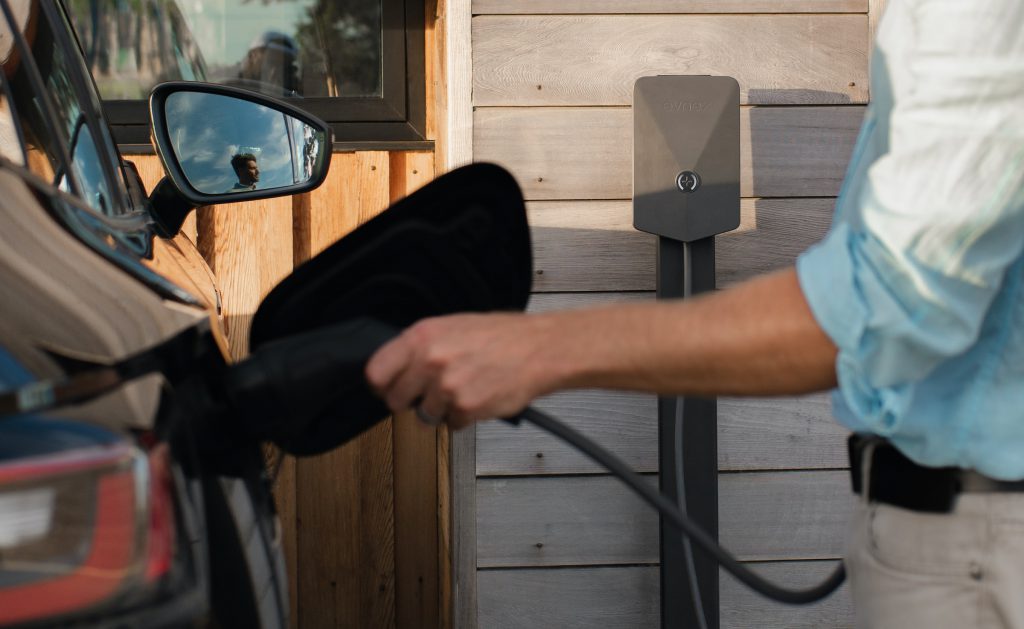Electric vehicles (EVs) are becoming an increasingly popular choice among Belgians, driven by a mix of personal conviction and the allure of company cars free from fuel constraints. This shift often necessitates the installation of a home EV charging station. To guide you through this process, we spoke with Geert Meerschman, director of GM Services in Lokeren, specializing in the installation of charging stations for private homes. Here are the crucial questions and expert insights for those considering investing in the future of mobility.

Is a charging station absolutely necessary?
According to Meerschman, relying solely on a standard electrical outlet is not advisable for long-term EV charging. A standard outlet isn’t designed to handle intensive use over several hours. "It could take up to 10 hours to fully charge a battery. Consequently, the outlet may overheat, posing several risks. A dedicated charging station is a safer and faster alternative," he explains.
How much does a charging station cost?
Prices start at around €1,000 for the most basic models and approximately €1,500 for a charging station with load balancing and a 22 kW capacity, including installation. These higher-end models also offer advanced features like split billing and economical charging options, manageable via a dedicated app. It’s worth noting that homes older than 10 years may qualify for a reduced VAT rate of 6%.
Do I need to upgrade my electrical installation?
Often, yes. Most residential homes are equipped with a single-phase electrical connection and a maximum power of 40 A. Charging an electric car, which requires a significant amount of electricity, could easily overload a weak system, especially if other high-power appliances are in use simultaneously. Upgrading to a three-phase 400 V connection is recommended to handle higher consumption and charge your vehicle faster—up to twice as quickly compared to a standard outlet.
What is the cost of upgrading my electrical system?
Nearly all homes can switch to a three-phase 400 V connection. This upgrade requires contacting your network operator to check feasibility and costs between €150 and €1,300. "The fuse box may need to be adapted but not necessarily replaced. Only the internal wiring and the circuit breaker need to be changed," adds Meerschman. The upgrade takes about 4 hours and costs around €500, labor and materials included.
Is electricity cheaper than fuel per kilometer?
"Driving on electricity is roughly twice as cheap as driving on diesel or gasoline, especially if you have a dual meter and can charge at a lower cost during the night," Meerschman states. However, it’s important to note that night tariffs are expected to be phased out in favor of variable pricing throughout the day.
Are solar panels a good idea?
"Charging your car with solar energy is undoubtedly the most cost-effective solution, especially with the phase-out of night tariffs," our expert advises. The ideal scenario involves a homeowner with solar panels and a digital meter charging their vehicle during a day of remote work. "And if you’re away during the day, you can rely on a battery that stored the solar energy produced to charge your car at night."
What about tax advantages?
Installing a fixed EV charging station at home may qualify you for a tax deduction on expenses incurred between September 1, 2021, and August 31, 2024. These expenses include the purchase, installation, and inspection of a new charging station. The tax deduction rate varies: 45% for expenses made from September 1, 2021, to December 31, 2022; 30% for expenses from January 1, 2023, to December 31, 2023; and 15% for expenses from January 1, 2024, to August 31, 2024.
How can I bill my employer for the electricity used by my charger?
"Most charging stations can be easily managed via an app, which simplifies sending a monthly usage report to your employer," Meerschman explains. Some stations also offer separate billing options, allowing for the distinction between personal use and that of a second vehicle or work commute. Moreover, smart charging stations can send consumption data or costs directly to the employer. Alternatively, a dedicated card provided by your electricity supplier can directly bill costs to the employer.
As the transition to electric mobility accelerates, understanding the essentials of home EV charging infrastructure is crucial. Considering the financial, practical, and safety aspects ensures not only a smoother transition but also maximizes the benefits of electric vehicle ownership.

 Open Immovlan
Open Immovlan